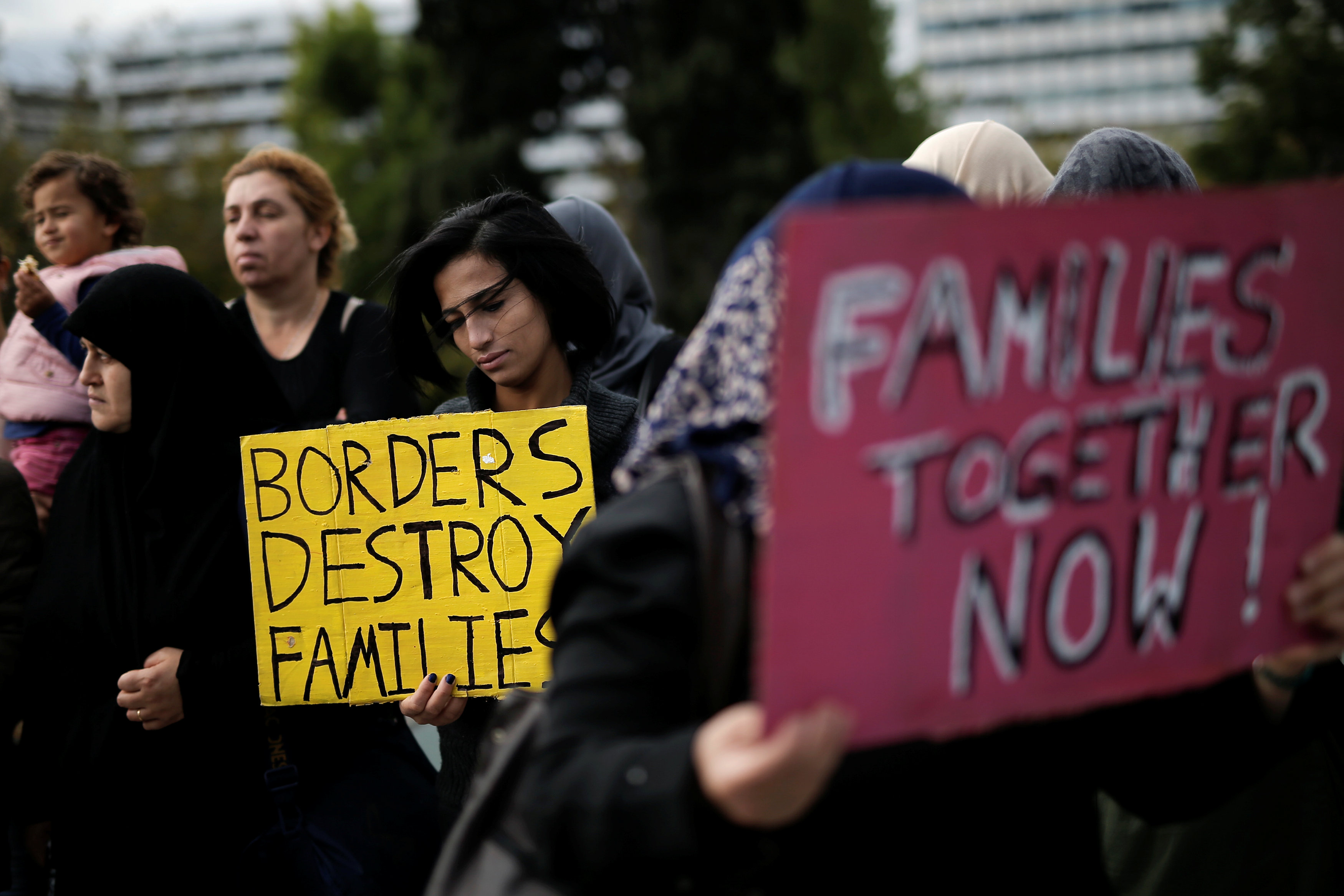
By Karolina Tagaris and Deborah Kyvrikosaios
ATHENS (Reuters) – A group of mainly Syrian women and children who have been stranded in Greece pitched tents opposite parliament in Athens on Wednesday in a protest against delays in reuniting with relatives in Germany.
Some of the refugees, who say they have been in Greece for over a year, said they had begun a hunger strike.
“Our family ties our stronger than your illegal agreements,” read a banner held up by one woman, referring to deals on refugees between European Union nations.

Refugees, some announcing a hunger strike, hold placards during a protest as they seek reunification with family members in Germany, near the parliament building in Athens, Greece, November 1, 2017. REUTERS/Alkis Konstantinidis
Greek media have reported that Greece and Germany informally agreed in May to slow down refugee reunification, stranding families in Greece for months after they fled Syria’s civil war. Greece denies this.
“What we’ve managed to do on family reunification is to have an increase of about 27 percent this year compared with last year, even though we’re accused of cutting back family reunification and doing deals to cut back family reunification,” Migration Minister Yannis Mouzalas told reporters.
Mouzalas said Greece had assurances from Germany that refugees whose applications have been accepted will eventually go to Germany even if there are delays. He denied that refugees had to pay for their flights.
Applications for asylum, reunification and relocation to other European countries can take months to be processed.
“I have not seen my husband, my child, for more than one year and nine months,” said 32-year-old Syrian Dalal Rashou, who has five children, one of whom is in Germany with her husband.
“I miss him and every day I am here in Greece I cry. I don’t want to stay here, I want to go to my husband” she said.
About 60,000 refugees and migrants, mostly Syrians, Afghans and Iraqis, have become stranded in Greece after border closures in the Balkans halted the onward journey many planned to take to central and western Europe.
Nearly 148,084 refugees and migrants have crossed to Greece from Turkey this year – a fraction of the nearly 1 million arrivals in 2015 – but arrivals have picked up in recent months.
An average of 214 people arrived each day in September, up from 156 in August, 87 in July and 56 in March, Mouzalas said.
The rise has stretched Greek island camps, which are struggling to cope with numbers two to three times their capacity. Most new arrivals are women and children, according to United Nations data.
Mouzalas said the government was in talks with local authorities to move refugees and migrants to local accommodation, including hotels, and it also planned to increase the capacity of some facilities.
(Reporting by Karolina Tagaris and Deborah Kyvrikossaios)




